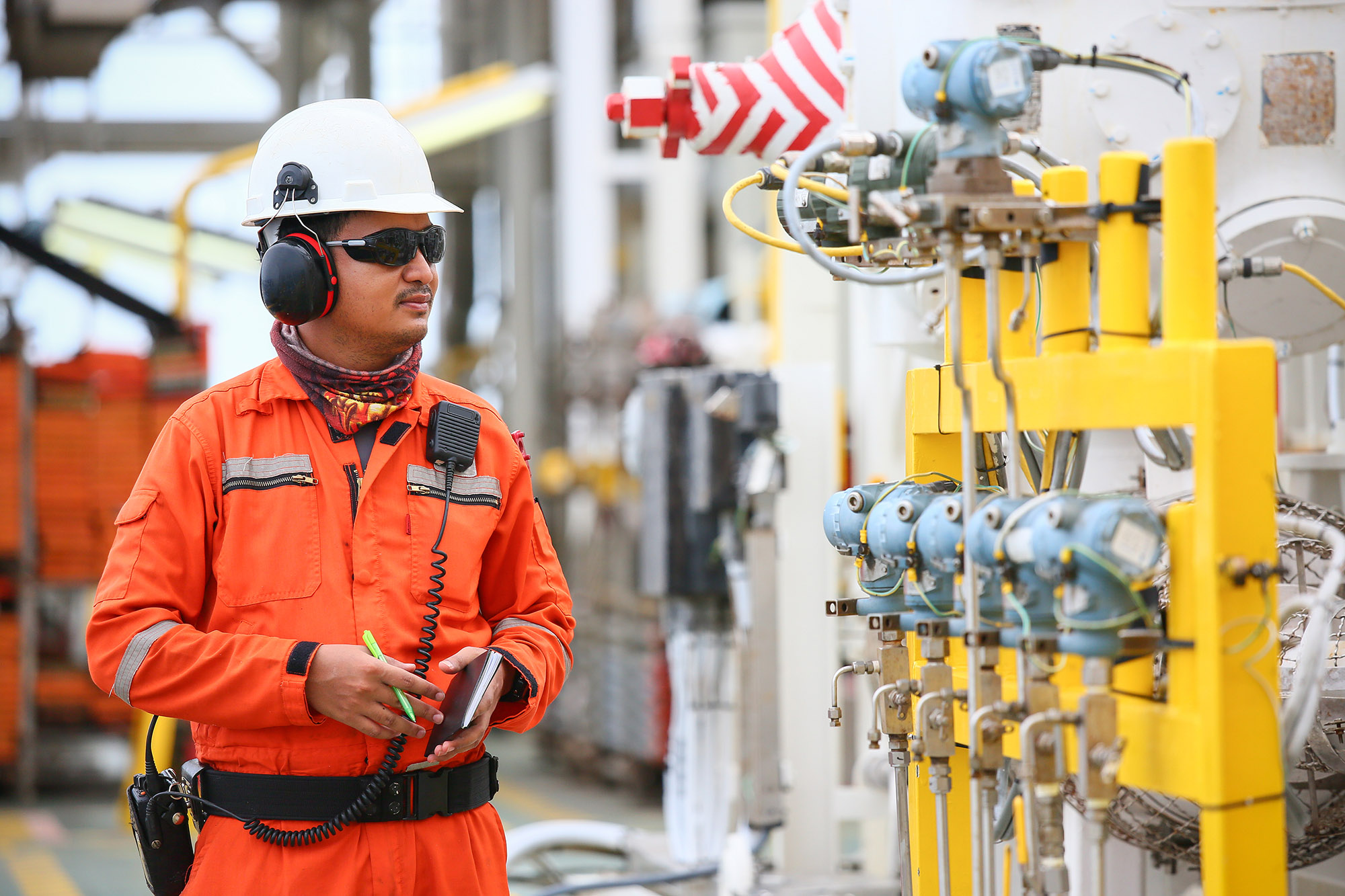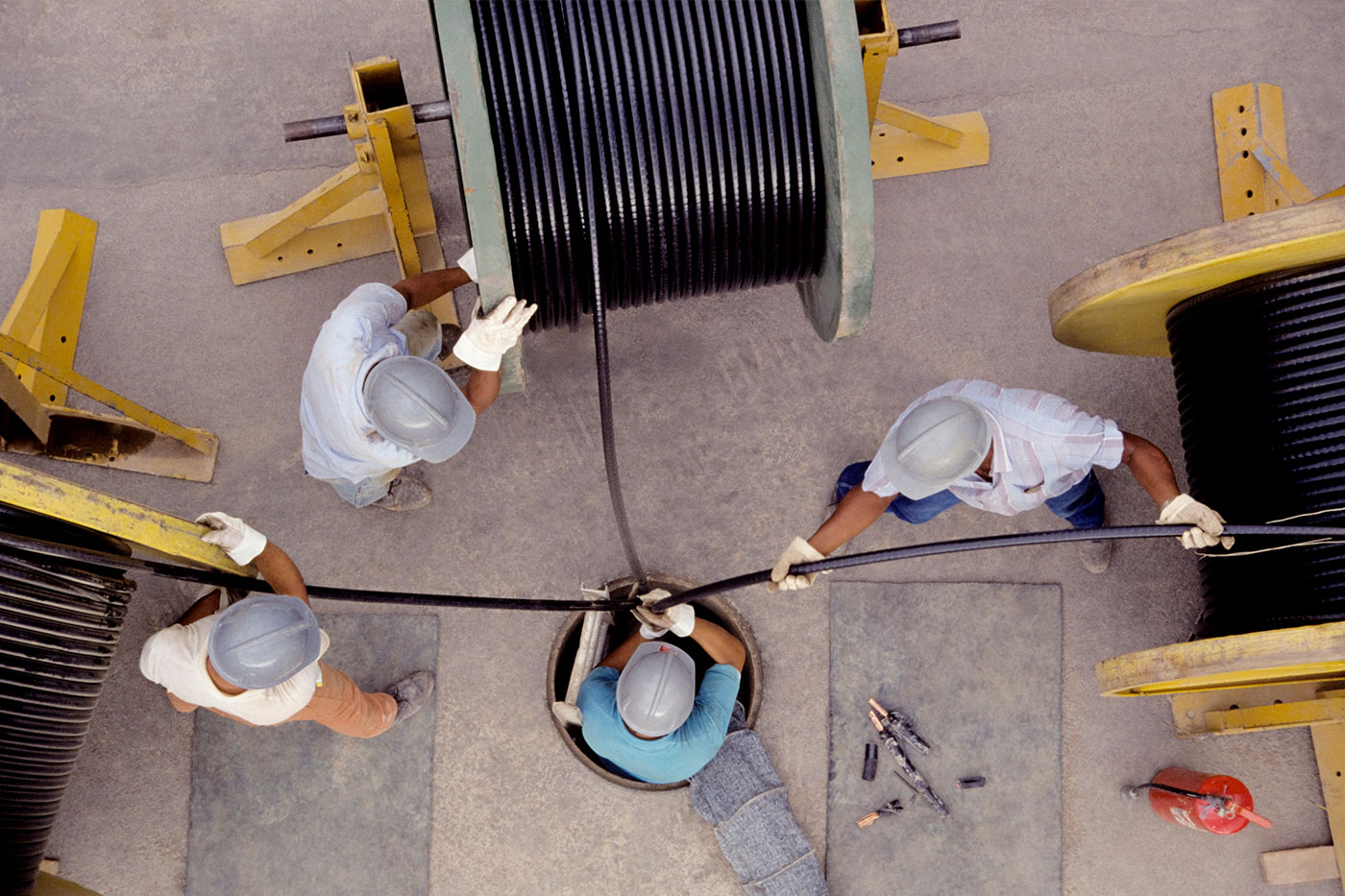
08 March 2024
Electrician Contractor: The Importance of Licensed Commercial Contractors
In the rapidly evolving oilfield and commercial sectors, the need for reliable electrical infrastructure cannot be overstated. The backbone of this reliability lies in the expertise and accountability of licensed commercial electrical contractors. These professionals bring more than just technical skill; they ensure safety, compliance, and efficiency in every project they undertake.

The Crucial Role of Licensed Commercial Electrical Contractors
Pioneering Electrical Solutions
Licensed Commercial Electrical Contractors (LECs) are the backbone of any project within the oilfield and commercial sectors. These contractors bring to the table a wealth of experience and expertise, ensuring that all electrical installations, maintenance, and repairs are executed to the highest standards. Their role extends beyond simple electrical work; they are responsible for pioneering solutions that enhance safety, efficiency, and reliability in complex commercial environments.
Ensuring Project Success
LECs serve as the pivotal point of contact for clients, managing every facet of the electrical project from the initial planning stages to final implementation. By leveraging their comprehensive knowledge and state-of-the-art tools, these contractors ensure that each project adheres to industry regulations and client specifications. This meticulous approach to project management underpins the successful delivery of electrical solutions, reinforcing the importance of licensed contractors in the construction industry.
The Significance of Licensing in Electrical Work
A Mark of Excellence
Licensing is more than just a regulatory requirement; it's a mark of excellence and reliability in the electrical trade. Obtaining a license involves rigorous training, extensive apprenticeship, and passing specialized exams that cover a wide spectrum of electrical knowledge, from basic wiring techniques to complex electrical system design. This process ensures that every licensed electrician and contractor possesses the necessary skills and knowledge to meet the high standards of commercial industries.
Legal and Professional Accountability
Beyond demonstrating technical proficiency, licensing also signifies a contractor's commitment to legal and professional accountability. Licensed contractors are required to stay up-to-date with the latest electrical codes, safety protocols, and technological advancements, ensuring they can offer the most current and compliant electrical solutions. This dedication to continuous improvement and adherence to legal requirements provides clients with peace of mind, knowing their projects are in capable hands.
Safety First: The Link Between Licensing and Safety
Prioritizing Safety in Every Project

Safety is paramount in the electrical field, and licensed contractors are at the forefront of implementing rigorous safety measures. The bond between licensing and safety is integral, as licensed professionals undergo specialized training focused on identifying, mitigating, and managing electrical hazards. This ensures that all electrical tasks are conducted with the utmost care, minimizing risks to workers, clients, and property alike.
Adhering to Industry Standards
Licensed contractors are well-versed in the latest safety standards and work diligently to ensure that every aspect of their work complies with these guidelines. From the initial design phase to the final inspection, licensed electricians make safety their top priority, employing state-of-the-art equipment and best practices to secure the workplace. Their expertise in navigating the complexities of electrical safety underscores the critical role of licensing in protecting the well-being of everyone involved in a project.
The Advantages of Hiring Licensed Contractors for Oilfield and Commercial Companies
Ensuring Compliance and Safety
One of the paramount benefits of hiring licensed contractors for oilfield and commercial projects lies in their unwavering commitment to compliance and safety. Licensed Electrical Contractors (LECs) have undergone rigorous training and examination processes to ensure their electrical work meets state regulations and industry standards. This extensive background in safety protocols and legal requirements not only safeguards against potential hazards but also fortifies the bond of trust between contractors and clients. By adhering to the latest safety codes, licensed contractors significantly minimize risks, ensuring a secure environment for all stakeholders involved.
Quality of Workmanship

Licensed contractors bring an unparalleled level of expertise and quality to every project they undertake. Their formal education, combined with years of hands-on experience, equips them with a deep understanding of the complex needs of oilfield and commercial operations. This expertise ensures that all electrical systems are designed and installed with precision, optimizing functionality and durability. Furthermore, licensed contractors are committed to ongoing professional development, keeping abreast of technological advancements and innovations in the construction industry, which translates into high-quality, efficient electrical solutions for their clients.
Project Management Proficiency
Efficient project management is a hallmark of licensed contractors. They possess the skills and experience to oversee projects from inception to completion, coordinating with other professionals, managing timelines, and ensuring resources are allocated effectively. Their proficiency in utilizing the latest project management software further enhances their ability to deliver projects on time and within budget. This comprehensive approach to project management not only streamlines operations but also provides clients with peace of mind, knowing their projects are in capable hands.
Navigating the Construction Industry: The Contractor's Perspective
Adaptation and Innovation
For contractors, navigating the construction industry means staying adaptable and innovative. The ever-evolving landscape of construction, marked by new technologies and shifting regulations, requires contractors to be flexible and forward-thinking. Licensed contractors invest time and resources into staying updated with the latest industry trends, from renewable energy solutions to smart building technologies. This openness to innovation not only improves their service offerings but also positions them as leaders in the field, ready to meet the complex demands of modern oilfield and commercial projects.
Building Relationships
A key aspect of a contractor's role in the construction industry is building and maintaining strong relationships with clients, suppliers, and other construction professionals. Licensed contractors understand the importance of clear communication and collaboration to ensure project success. By establishing a solid foundation of trust and reliability with every interaction, contractors create lasting partnerships that benefit all parties involved.
The Process of Choosing the Right Contractor
Verifying Credentials
When choosing a contractor for oilfield and commercial projects, the first step is to verify their credentials. Ensuring that the contractor is licensed and has a clean record with the state licensing board provides a baseline of trust and legality. Clients should also consider the contractor's bond and insurance forms, which protect against potential financial liabilities. This due diligence ensures that the contractor meets all necessary legal and safety requirements to undertake the project.
Assessing Experience and Past Projects
Experience is a critical factor in selecting the right contractor. Clients should look for contractors with a proven track record in oilfield and commercial projects similar to their own. Reviewing past projects and speaking with former clients can provide valuable insights into the contractor's ability to deliver quality work and manage projects effectively. This assessment helps clients gauge the contractor's expertise and reliability, ensuring they have the right skills for the job.
Aligning Project Goals
Finally, choosing the right contractor involves aligning project goals and expectations. During the selection process, clients should discuss their specific needs and requirements with potential contractors. This includes everything from project timelines and budget constraints to specific electrical work and safety protocols. Finding a contractor whose experience, approach, and values align with the client's project goals is crucial for a successful partnership and project outcome.
Conclusion
The indispensable role of licensed electrical contractors in the success and safety of oilfield and commercial projects cannot be overstated. These professionals bring a wealth of experience, training, and a commitment to compliance that is pivotal for the intricate requirements of modern electrical systems. With the complexities of today's construction industry, the assurance of working with licensed professionals offers invaluable peace of mind. From project inception through to completion, licensed contractors ensure every aspect of the electrical work is executed to the highest standards, prioritizing safety, efficiency, and reliability. This dedication to excellence underlines the importance of choosing experienced, licensed contractors for all electrical work needs, guaranteeing the long-term success and safety of your projects.
Frequently Asked Questions About Electrical Contractors for Oilfield and Commercial Companies
Why is it crucial to hire a licensed electrical contractor for my project?
Employing a licensed contractor ensures that all electrical work adheres to the highest safety and compliance standards set by the state and industry. Their training and bond provide assurance that they're equipped to handle the complexities of electrical systems securely.
What qualifications should I look for in a commercial electrical contractor?
Key qualifications include a valid state license, proof of apprenticeship or equivalent training, extensive experience in commercial projects, and a solid track record of safety. A licensed contractor (LEC) will also have the necessary bonds and insurance forms, offering further protection and reliability.
Can general contractors perform electrical installations and repairs?
Electrical work requires specific skills and knowledge that are typically beyond the scope of general contractors. For safety and compliance reasons, this work should be reserved for licensed electricians or electrical contractors who are trained and authorized to perform such tasks.
How frequently do commercial electrical systems need inspection?
The inspection frequency depends on several factors, including the system’s age, usage, and local codes. Generally, it's advised to have a licensed electrical contractor review your systems annually to ensure ongoing safety and efficiency.
What distinguishes a restricted contractor from a licensed electrical contractor?
Restricted contractors may only perform specific types of work or work within certain limitations, often dictated by their license type or local regulations. In contrast, a licensed electrical contractor has met broader, more comprehensive requirements, allowing them to undertake a wide range of electrical projects.
Not what you were looking for? Copper Electric also offers the following services:
Industrial Electrical Services
Copper Electric’s Top Resources for Further Reading:
Alberta Construction Safety Association (ACSA)
Electrical Contractors Association of Alberta (ECAA)
Alberta Apprenticeship and Industry Training

